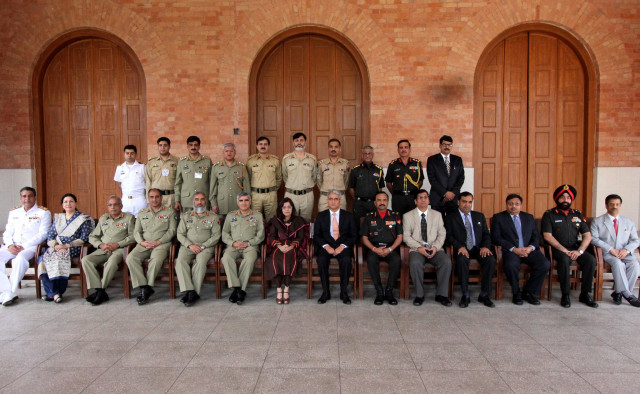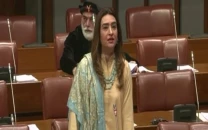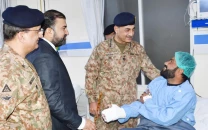No deal at India-Pakistan talks on Siachen dispute
Pakistan wants agreement of disengagement, simultaneous troop withdrawal. Both sides will now meet in New Delhi.

There had been fresh hope of a breakthrough after the misery of the world's highest battlefield was brought home by an avalanche that killed 140 people at a Pakistani army camp on April 7.
A joint statement said talks between India and Pakistan's defence secretaries – the highest civil servants at their respective ministries – had been held "in a cordial and friendly atmosphere" at the Pakistani ministry in Rawalpindi.
The two sides would next meet in New Delhi, but no date was announced. It was the 13th round of talks to end in stalemate.
"Both sides reaffirmed their resolve to make serious, sustained and result oriented efforts for seeking an amicable resolution," the statement said.
"It was agreed to continue dialogue on Siachen in keeping with the desire of the leaders of both countries for early resolution of all outstanding issues."
Threat of Siachen pollution
Speaking to the media, Sethi also mentioned the issue of environmental degradation and pollution owing to human activity at the glacier were a growing threat. “We have informed the Indian delegation that glacier melting and pollution on Siachen was not only an issue of concern for the region but it could affect the entire world."
She added that the Indian side was informed to consider an agreement of disengagement and that Pakistan wanted a simultaneous withdrawal of troops from the Pakistani and Indian side of the glacier.
Responding to a question, she said the Indian delegation insisted on authentication of present positions of the troops of both the countries at the glacier.
When Indian Defence Secretary, Shashikant Sharma was asked about the progress on the issue, he briefly said, "Yes, there is some further movement on Siachen issue."
Pakistan High Commissioner-designate to India, Sulman Bashir and Indian High Commissioner to Pakistan, Sharat Sabharwal, besides, civil and military officials assisted their respective countries during the talks.
The nuclear rivals have kept a ceasefire on the Himalayan glacier since 2003.
In April, Pakistan's Chief of Army Staff General Ashfaq Kayani called for a negotiated solution and said that the glacier should be demilitarised.
India and Pakistan have fought three wars since independence in 1947, two of them over the Himalayan region of Kashmir, which is divided by a heavily militarised Line of Control and which both countries claim in full.
Last year they resumed their tentative peace process, which collapsed after gunmen from Pakistan killed 166 people in Mumbai in November 2008.
Analysts say there is growing support in Pakistan for rapprochement with India, which could help boost its flagging economy and quell tensions on the eastern border as Pakistan grapples with a deadly Taliban insurgency in its northwest.
But India shares increasing US frustration with Pakistan's unwillingness or inability to clamp down on havens used by militants who attack US troops in Afghanistan and who pose a threat to India.



















COMMENTS
Comments are moderated and generally will be posted if they are on-topic and not abusive.
For more information, please see our Comments FAQ